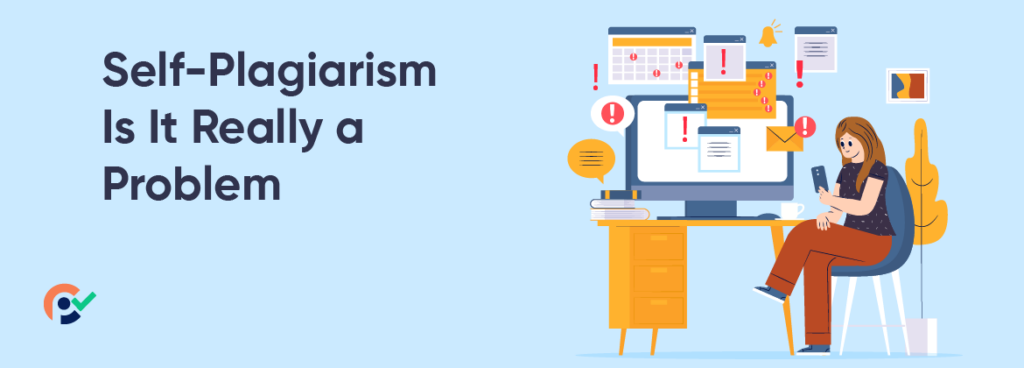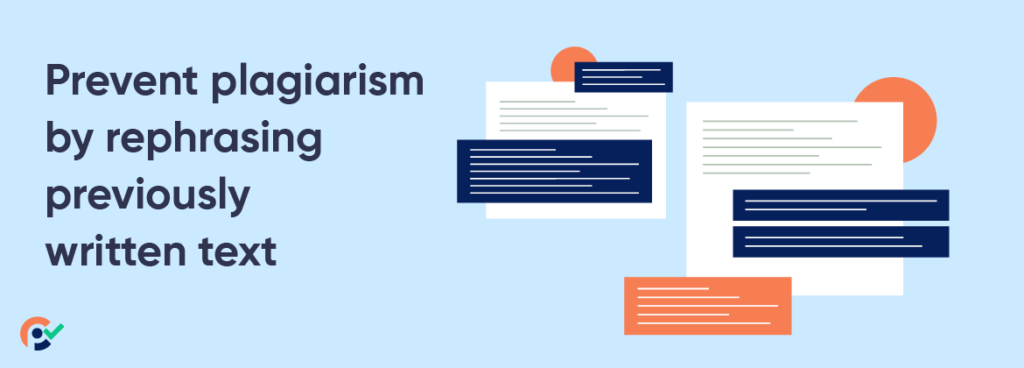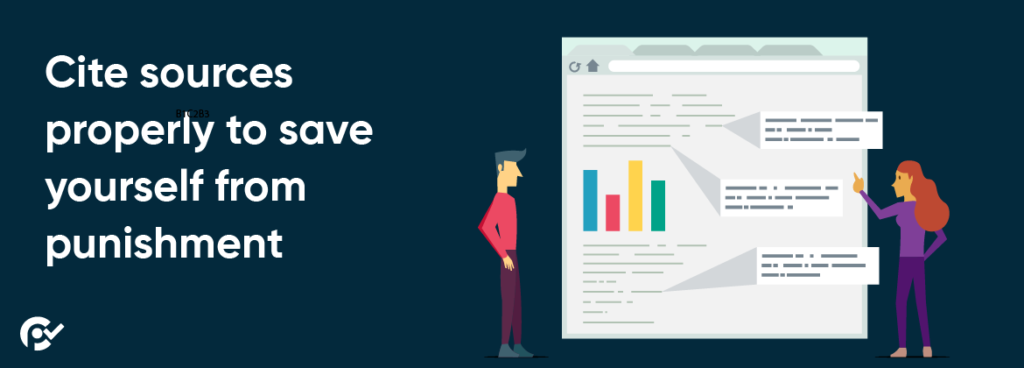
Self-Plagiarism: Is It Really a Problem
Writing engaging and appealing content is a time-consuming and tedious task. Gone are the days when anyone could copy the work of others authors and present it as their own creation. The world is witnessing an incredible digital revolution. This massive upgrade in digital technology has blessed everyone with remarkable facilities to uncover piracy in anyone’s work.
There is a consensus in the writers’ and researchers’ fraternity that plagiarism is unacceptable. However, there is a debate about the severity of any particular type of plagiarism than others.
For instance, direct or complete duplication of any text by someone and presenting it as their own creation is the most severe form of plagiarism that can cause serious damage to a writer’s credibility and fame. Also, serious penalties like a failure in the subject, expulsion from an institute, losing a job, or other severe punishments can be awarded to people committing this crime.
Direct plagiarism is always considered more severe than accidental plagiarism. People who are not familiar with accidental plagiarism, it’s the type in which someone mistakenly copies anyone’s work unintentionally.
Self-plagiarism is a type of accidental plagiarism that can cause serious problems for a writer. In this blog post, we will discuss self-plagiarism and how it can harm us. So, keep reading this blog until the last word to learn everything about this type of plagiarism.
What Is Self-Plagiarism?
Many people often get confused by listening to this term. The first question that comes to many minds is how we plagiarize our own work. If you reuse your content again without citing the original text, then it’s known as self-plagiarism.
Self-plagiarism includes:
- Reusing an entire published post
- Rewriting passages from previously published content
- Restating already-used data
- Using previously published research work in different new articles
Self-plagiarism is also measured as piracy as it misleads your readers by offering them already published work as new content. The simplest way to avoid the charges of self-plagiarism is by citing yourself to guide readers.
Why Do Some Researchers Self-Plagiarize?
Self-plagiarism is less dangerous than direct plagiarism, but it is not acceptable in any walk of life. Unfortunately, there are many instances where people practice this unethical act knowingly or unknowingly. Researchers are mostly found duplicating their own research work in their newspapers.
The primary reason behind following self-plagiarism is massive pressure from their supervisors that makes them try any possible options to complete their assigned task. Many researchers believe that duplicating previously published work is the only way to progress in their research work and attract funding.
Another major reason for self-plagiarism is the unawareness of its consequences one can have to face. There are a number of people, especially researchers, who find duplicating their own work in a new project completely legal.
They follow this practice with the view that because they are the author, they can copy the information and use it in their work again. However, such individuals must learn the rule that using any previously published content requires proper citation. Otherwise, it will be considered plagiarism and lead an individual to face severe penalties for committing plagiarism.
Reasons that Lead College Students Commit Self-Plagiarism
Writing academic assignments is a crucial part of college life. College students are expected to submit well-written, research-based assignments in the given time to get good grades.
However, crafting unique and excellent-quality content isn’t child’s play. This becomes more challenging when students have plenty of assignments that are supposed to deliver within a short span. This reduces the research time for students.
Most students find the best way to meet the deadline by using their previously used idea to complete the assignment. Failing in finding a unique idea is another prominent reason that leads students to commit self-plagiarism.
For instance, if a student has written 6 assignments on the role of AI in checking plagiarized text and is asked again to write another assignment on the same topic, the chances of self-plagiarism become higher. But, this makes students face potential consequences of violation of academic honor code.
Many universities consider self-plagiarism a breach of the code of conduct, just like any other type of plagiarism. However, this can be managed by consulting your professor. There are possibilities that your professor will allow you to reuse your previous work. This will save you from being penalized for plagiarizing your own work.
Most Frequently Asked Questions About Self-Plagiarism
Self-plagiarism is a confusing topic for many individuals. There are many questions most people have regarding the legal way of reusing their own work. How can we know what kind of material we can reuse? Or can we recycle the entire article or not? The following information will certainly help you find the answers to such questions.
Can I Recycle the Full Article?

Is it fine to reuse a few sentences or paragraphs, or can we recycle the entire paper? Well, there is a clear difference between both parts of the questions. The consequences of reusing the entire article are certainly more severe than recycling a few sentences. However, the best approach is to rephrase text instead of copying it to avoid any unwanted situation. The use of an online paraphrasing tool is ideal for reducing your efforts and getting quality rephrasing output.
Can We Reuse Any Type of Content?
Recycling the previously published arguments or major points of an article will surely have a worse effect than reusing the basic or general information regarding a topic.
For example, the articles like the importance of high-quality content in digital marketing, challenges in writing impressive content, and advantages of paraphrasing may have some of the same background information consisting of the complication with writing unique and impressive content for beginners.
Therefore, the primary idea in these articles will stick to almost similar contexts. However, the information will start changing as you progress. Therefore, recycling the general information is clear, but it is advised not to include a major portion in multiple articles.
The best way is to come up with a unique idea to become a pro in content writing. Pinning down your ideas differently in every article will help impress your audience and save you from the charges of self-plagiarism.
On the other hand, spinning the same context or concept, again and again, is surely a bad idea that will raise questions about your credibility and skills and may lead you to face undesired consequences.
Ways to Avoid Self-Plagiarism
Here are a few useful suggestions that will help individuals avoid self-plagiarism and maintain uniqueness throughout the content.
Consult Your Supervisors
If you are a student and working on an academic assignment, then consulting your instructor is a highly useful approach to avoid any chances of duplication. There are cases where professors have different policies regarding assignment writing.
That’s why discussing the matter with them will enable you to learn their consent about reusing previous work in the new assignment. But, it is important to know that your teachers will not appreciate it if they find you recycling your own work without asking for it.
Reusing previously published material in a new assignment is definitely not a practical way of completing given tasks. Instead, hitting the other possible aspects of the same idea or expanding your previously stated concept in new writing is a better way to ensure uniqueness. Still, consulting your professors is valuable to avoid academic dishonesty.
Cite Yourself Properly

The appropriate citation is the best way to avoid plagiarism. Treating yourself as any other author whose work you are going to use in your writing will help you formulate your statements.
That’s why make it a habit to cite each resource, including yourself. This will allow readers to know the inspiration taken from previous research work and enable them to understand how new content is different from previous work. Also, using the standard way for citing the source is important to prevent yourself from punishment.
Rephrase Text
Reusing the entire text or a few sentences may lead you to stand among plagiarists. Oppositely, paraphrasing the text is a valuable approach that allows you to keep your text original. Rephrasing sentences from previously published work using different vocabulary or an online sentence rephraser helps you avoid self-plagiarism.
However, this process requires extensive vocabulary and a firm grip on grammatical structures. In case you find it hard to rephrase the written work adequately, using a paraphrase tool is a better way to get the job done. The advanced facility restructures the entered text and offers fresh pieces of content in a few seconds.
Check for Plagiarism with Advanced Utility
Taking assistance from modern facilities like online plagiarism checkers is another beneficial way to avoid self-plagiarism. A reliable plagiarism checker scans your uploaded text and checks for any similarity against a massive database of published written material.
Any sort of plagiarism will be highlighted instantly, which will allow you to eliminate it to ensure the exclusiveness of the text. The use of a duplication checker is also advantageous for examining your rephrasing skills. Finally, the plagiarism check result report can be shared with a supervisor as proof of the uniqueness of your work.
Final Words
In the last analysis, self-plagiarism is dangerous for writers’ credibility and can cause serious punishments. The information shared above will help you learn the reasons for duplicating your own work. Moreover, this will help you get familiar with the consequences of plagiarizing your own work. However, following the suggestions shared above will help you prevent the penalties for plagiarism.
We hope this blog post will guide you about self-plagiarism and help you avoid it to save yourself from any unexpected situations.







